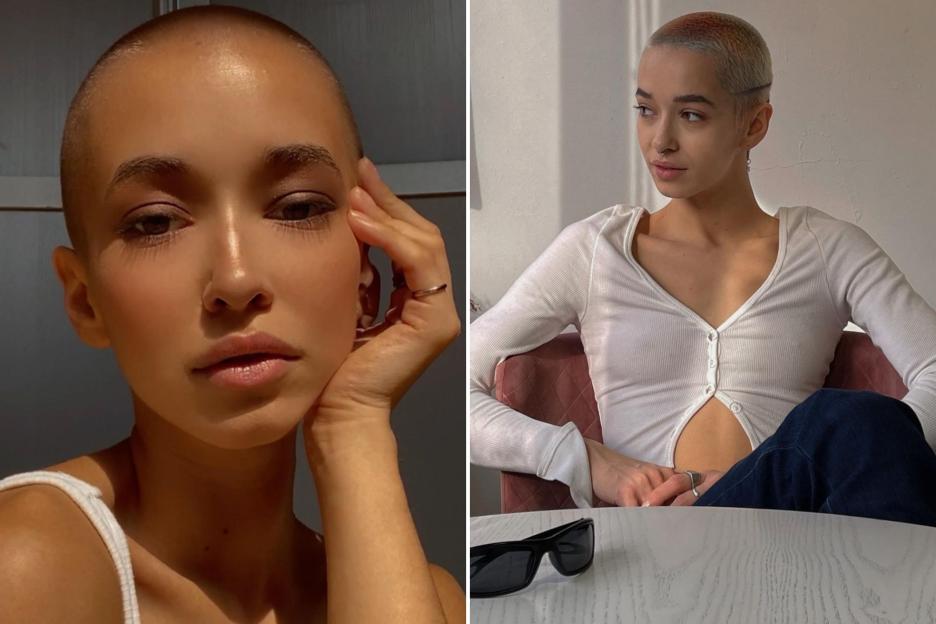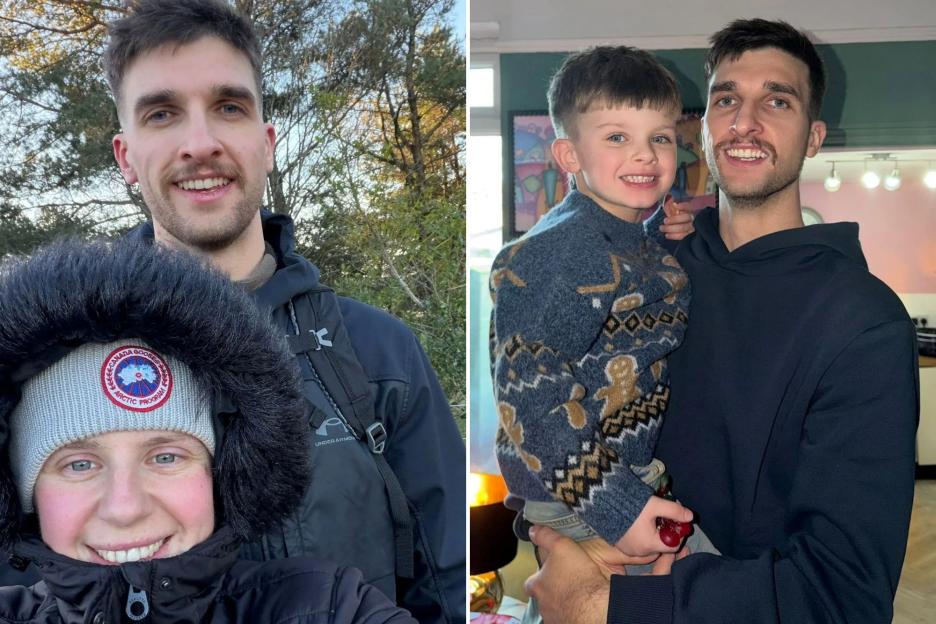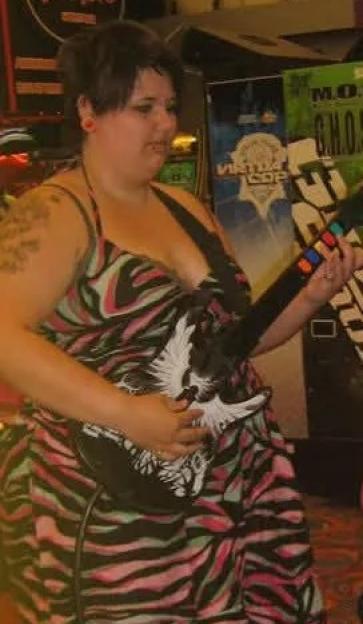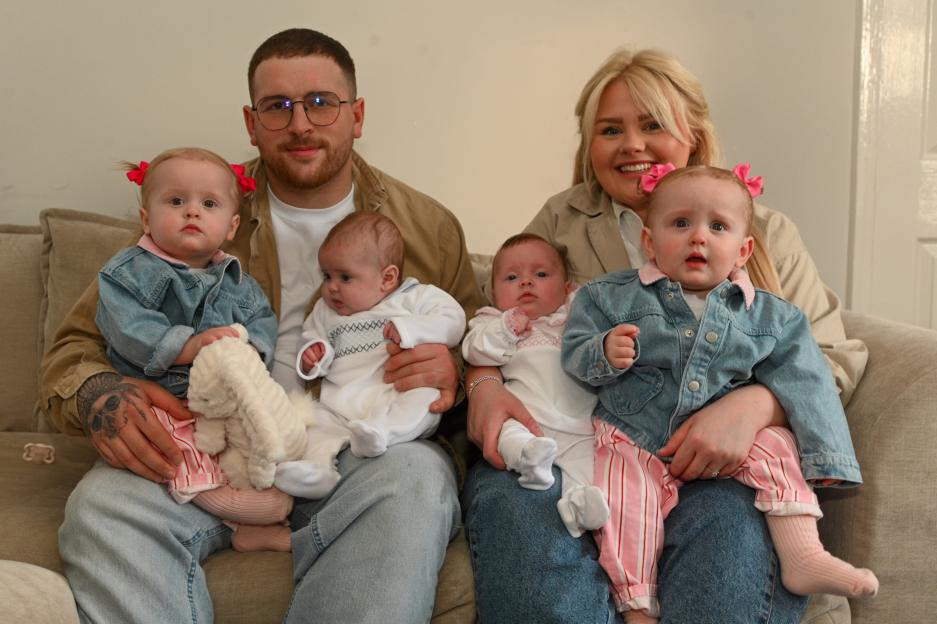A MUM accused by her son of “sacrificing” his sister, who died from “treatable” cancer, has told an inquest she is the victim of a “witch hunt”.
Kay “Kate” Shemirani is a former nurse, struck off in 2021 for spreading anti-medicine and anti-vaccine Covid-19 misinformation .
 Paloma Shemirani (pictured) died after refusing chemotherapy
Paloma Shemirani (pictured) died after refusing chemotherapy
 Her mum Kay “Kate” Shemirani (pictured) has been accused by her son, Gabriel, of ‘sacrificing’ his sister
Her mum Kay “Kate” Shemirani (pictured) has been accused by her son, Gabriel, of ‘sacrificing’ his sister
 Gabriel Shemirani (pictured) blames his mum for Paloma’s death
Gabriel Shemirani (pictured) blames his mum for Paloma’s death
She has denied influencing her 23-year-old daughter Paloma Shemirani’s decision to refuse treatment for non-Hodgkin lymphoma – a type of blood cancer which starts in the lymph nodes.
Paloma was a University of Cambridge graduate and a Miss Universe Great Britain 2021 finalist.
She collapsed on July 19 last year and died five days later of a heart attack .
A few months earlier, doctors told Paloma, who was originally from Uckfield in East Sussex, her cancer was “treatable” and that she had an 80 per cent chance of recovery with chemotherapy .
On Monday, the inquest in Maidstone heard Kate deny influencing her daughter’s decision.
She said: “It doesn’t matter what my view was, it was what Paloma wanted to do.”
The BBC reported the court was played a voice note from Kate to Paloma’s boyfriend, sent two or three days after the diagnosis at Maidstone Hospital in December 2023.
In it, she told him to “put Paloma in a wheelchair to take her down to the car” and to listen to the message “in private and away from Paloma’s ears”.
She also told him to drive “very carefully without braking sharply”.
In response, Kate said she would need the “forensic data” before agreeing the voice note heard by the court was from her, but added that whoever left the message gave “fantastic advice”.
She said she had not wanted Paloma to hear because she would have been frightened that she could be injured if her boyfriend drove too fast.
When asked about her views on chemotherapy, Kate said: “Why is this about me and my opinions? Is it a witch hunt?”
Paloma’s twin brother, Gabriel, previously told the inquest that when Paloma was first diagnosed she was considering chemotherapy.
That was “before their parents started to pressure her against it”, he added.
“I blame my mother entirely for my sister’s death”, he said, by “obstructing” his sister from receiving treatment.
“In short, I believe that she sacrificed Paloma’s life for her own principles, I believe that she should be held accountable for Paloma’s death,” said Gabriel.
He added: “Paloma had a complicated relationship with our mother, maybe it is because she had a complicated relationship that she decided to rekindle that relationship when she became ill.”
 Kate says she is the victim of a witch hunt
Kate says she is the victim of a witch hunt
 She denies influencing her 23-year-old daughter Paloma Shemirani’s decision
She denies influencing her 23-year-old daughter Paloma Shemirani’s decision
 ‘I blame my mother entirely for my sister’s death,’ Gabriel has told the inquest
‘I blame my mother entirely for my sister’s death,’ Gabriel has told the inquest
Kate told the inquest she had asked for Paloma to have all her medical notes and results so she could get all the facts and a second opinion from doctors they knew in Iran and Mexico.
She said she did not know if the records were ever sent to another oncologist or haematologist for the second opinion “because they were Paloma’s records and she was 22 – an adult”.
Alison Hewitt, counsel at the inquest, asked Kate: “It is the case, isn’t it, that you have expressed publicly views which are contrary to chemotherapy… you consider chemotherapy is a dangerous and toxic process and one that you wouldn’t advise someone suffering cancer undergoes?”
Kate branded the question “slanderous” and “not true”, adding: “In all my public appearances I say people should get all the information and then decide.”
When pushed on whether she had described chemotherapy as mustard gas, she replied: “This is not relevant. You’re making slanderous accusations. People should be able to choose.”
Kate has said she had a tumour removed through surgery .
Online, however, she credits alternative therapies for her recovery and says she used a programme including juices and coffee enemas to become “cancer-free”.
The former nurse said she would have supported her daughter “physically and financially” whatever her decision on receiving treatment.
Earlier in the hearing, when describing the months before her daughter’s death, Kate said Paloma had chosen treatment which included nutrition, juices and spiritual support, claiming that many of her symptoms had disappeared.
Intensive care consultant Dr Peter Anderson told the court a scan showed a large mass in Paloma’s chest and neck compressing her airways and affecting major blood vessels.
Either could have caused the cardiac arrest, he added.
The inquest continues.
 Paloma was a University of Cambridge graduate and a Miss Universe Great Britain 2021 finalist
Paloma was a University of Cambridge graduate and a Miss Universe Great Britain 2021 finalist Non-Hodgkin lymphoma treatment, as recommended by the NHS
Non-Hodgkin lymphoma is usually treated with chemotherapy or radiotherapy, although some people may not need treatment straight away.
In a few cases, if the initial cancer is very small and can be removed during a biopsy, no further treatment may be needed.
If non-Hodgkin lymphoma is low grade (slow developing) and a person is well, a period of “watch and wait” is often recommended.
This is because some people take many years to develop troublesome symptoms and starting treatment immediately is often felt to be unnecessary.
But in other cases, chemotherapy is used to kill cancer cells.
If non-Hodgkin lymphoma doesn’t get better with initial treatment (known as refractory lymphoma), you may have a course of chemotherapy at a stronger dose.
But this intensive chemotherapy destroys your bone marrow, and can lead to the following side effects:
- nausea and vomiting
- diarrhoea
- loss of appetite
- mouth ulcers
- tiredness
- skin rashes
- hair loss
- infertility, which may be temporary or permanent
A stem cell or bone marrow transplant is then needed to replace the damaged bone marrow.
Radiotherapy is most often used to treat early-stage non-Hodgkin lymphoma, where the cancer is only in one part of the body.
And for some types of non-Hodgkin lymphoma, you may have a type of medicine called a monoclonal antibody.
These medicines attach themselves to both healthy and cancerous cells, and signal to the immune system to attack and kill the cells.
Other potential non-Hodgkin lymphoma treatments include:
- Cancer growth blockers
- Steroid medicine
- Immunotherapy
Source: NHS







